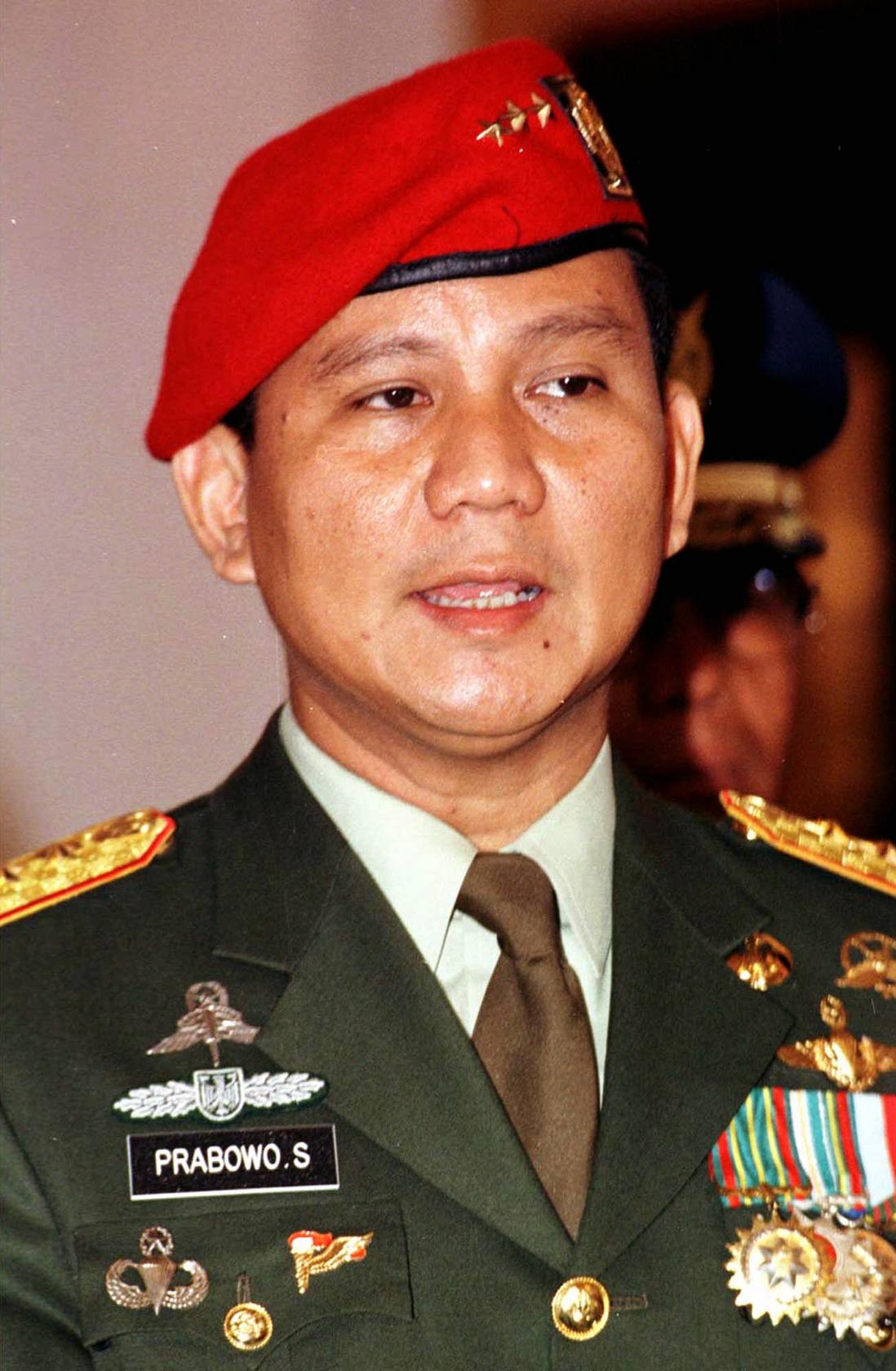But it's this man who'll probably have most to say about our security.
Prabowo looking Presidential
Prabowo looking Commanding
This column for the Canberra Times considered the link between the two issues . . .
DO YOU WANT DEFENCE OR, PERHAPS, SECURITY?
The single-most important factor
relating to our future defence and security environment will be decided – for
good or ill – on Wednesday next week. Why? Well, that’s the day the fourth most
populous country in the world and a country that will have a bigger industrial
base than us by 2020, Indonesia, goes to the polls. And guess what? We don’t
get a vote.
This is the crucial, salient fact
to remember as our new Defence White Paper is being put together. It’s all very
nice and good that Tony Abbott this week endorsed an even more right-wing Japanese
PM who wants to rearm his country in defiance of that country’s constitution.
It’s all very well for our Prime Minister to unilaterally – and without any
scientific or military backing – endorse the demonstrably inferior capabilities
of Abe’s submarines and unilaterally suggest we might buy Japanese. And it’s
quite OK if Abbott wants to ‘warn’ China to behave in the South China Sea. But after
every playtime we still have to come back to the classroom and unfortunately,
no matter how much you close your eyes and wish for something very, very hard .
. . the harsh world of reality won’t change.
The current betting is that
Prabowo Subianto (the former general who enters his massive campaign rallies
riding like a white knight) will decisively defeat outsider Joko Widodo (the
youthful governor of Jakarta). We know this because the last fortnight’s seen
Prabowo garner an increasing number of endorsements from everyone who hopes to
get a job with any new administration. At a foreign affairs debate during the
campaign both candidates won applause by insisting they’d stand-up to Australia
and, while neither are openly hostile, a new mood is likely to enter our
relationship with Indonesia, particularly if Prabowo does become President.
Very suddenly we can forget all about playing in the South China Sea.
It’s not that there’s the danger
of a military clash with Jakarta, but simply that there are so many other
issues for which our security, broadly defined, vitally depends on Indonesia.
Take climate change. The stats are now in and (according to the US’s National
Oceanic and Atmospheric Administration) this year the earth had the warmest May
since records began. It was also the 351st consecutive month with a
temperature above the 20th-century average. This doesn’t mean there
won’t be snow in the mountains today – global trends are going to have
different effects in different places. But if climate change is real it adds a
further complicating dynamic to the security equation.
So do other issues. Is
maintaining a shipbuilding industry really so vital that we should be paying a
premium of thirty percent so we can buy something that’s home made. We were
given that choice with cars and voted not to with our wallets. In numbers so
overwhelming that the car-builders are now leaving the country. Why should
naval engineers be a protected species when autos are more vital to our
lifestyle? And this leads us on to fuel stocks. What’s the point of possessing
a defence force when all a foreign power needs to do is to prevent the import
of petrol and then wait for our society to collapse in on itself? Our
dependence on this networked world represents an extremely dangerous factor
that demands its own accounting in any genuine examination of our security
environment. New trend-lines are welded into place already and there’s no point
in pretending otherwise. Posturing is pointless. Just peer forward and you’ll
see the future and, importantly, it’s not like the past.
Understanding this is to
comprehend the difficulties faced by the team advising the drafters of the
White Paper. These concerns rocketed around a Royal United Security Institute
forum discussing the issues in Canberra this week and everyone had their own
answer. The answers stretched from the sublime (recognising that China’s
intervention in the waters between Vietnam and the Philippines means that this
superpower must now be counted as a South East Asian nation) to the silly
(another squadron of tanks will guarantee security).
I sat with 150 others in the big
room at the Harmonie Club in Narrabundah; listening to firmly-held opinions
being aired as the fried spring rolls bathed in the warming lights of the food
heater; watching as the same issues that have been debated for years were
unrolled again for our consumption. Nobody could possibly doubt the goodwill
(although, in some cases, you might have doubted the wisdom) of those who’d come
to debate the issues. And then I suddenly realised: this is why we have
politicians.
Local (Labor) MP Gay Brodtmann
demonstrated why politics is an art. Her contribution was to introduce a robust,
five-point framework for deconstructing the challenges defence faces. What’s
our environment; what do we want to do; what force do we need to achieve this;
can we afford it; and, if not, what other ways are there of accomplishing our
objective, or does this need to change?
The politicians are the people
who’ll have to reconcile our overarching objectives with our willingness to pay
for the means to accomplish them. Yet the most vital ingredients of a
successful strategy will be a friendly neighbourhood.

Wot you lookin' at ? eh ?
ReplyDelete